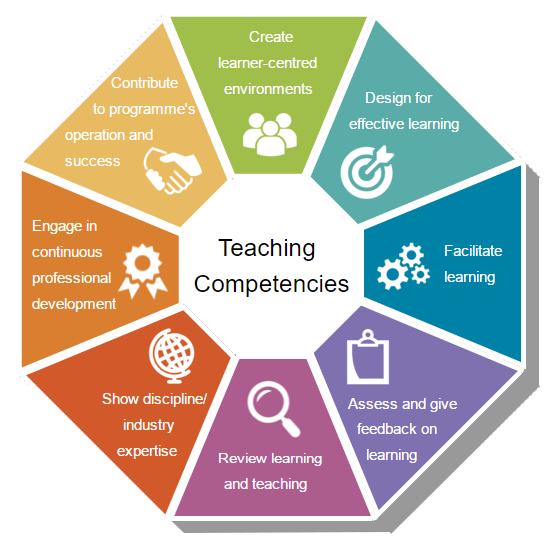Teaching competency of prospective secondary teachers
Keywords:
Teaching Competency, Secondary Teachers, B.Ed. Trainees, Govt. Aided, Unaided College.Abstract
This study investigates the teaching competency of prospective secondary teachers, recognizing the critical role teachers play in national development through quality instruction. The research aims to assess the overall teaching proficiency of B.Ed. trainees and explore variations based on demographic and educational factors such as gender, locality, type of institution, educational qualification, and academic stream. Competency in teaching encompasses a combination of subject knowledge, instructional ability, classroom management, communication skills, and ethical practice, all of which contribute to effective learning environments. The study employed a quantitative research methodology involving a sample of 300 prospective secondary teachers from government-aided and unaided institutions. Data were collected using a Personal Data Sheet and the General Teaching Competency Scale, with scores evaluated through descriptive and inferential statistics, including mean, standard deviation, percentage analysis, and t-tests. The findings revealed that the overall teaching competency among participants was average. No statistically significant differences were found in teaching competency based on gender, type of institution, educational qualification, or academic stream. However, a significant difference was observed based on locality, with rural trainees demonstrating higher competency than their urban counterparts. These results suggest that while teacher training programs produce generally competent graduates, greater emphasis is needed on individualizing pedagogical strategies to address diverse learner backgrounds. The study recommends enhancing pre-service teacher education by incorporating continuous training, modern teaching aids, and inclusive, practice-oriented strategies to improve professional competencies. It also underscores the importance of cultivating a positive attitude towards teaching and modeling best practices during teacher training.
References
[1] J. Augustine, 'Teaching Aptitude Competency, Academic Background and Achievement in Educational Psychology', Edutracks, vol. 9, pp. 26-27, 2010.
[2] B. Biswalk and P. C. Dash, 'Statistics in Education and Psychology', Statistics in Education and Psychology, 1994.
[3] B. N. Dash, A New Approach to Teacher and Education in the Emerging Indian Society. Hyderabad: Neelkamal Publications Pvt. Ltd, 2005.
[4] A. J. Eben and S. Sebastian, 'Teaching Competency of the Teachers in the School for the Mentally Challenged', Research and Reflections on Education, vol. 5, no. 3, pp. 21-25, 2007.
[5] A. V. Gopalakrishnan, 'Relationship Between Self Efficacy and Teaching Competency of Secondary Teacher Education Students', New Frontiers in Education, vol. 41, pp. 305-317, 2008.
[6] M. P. Fathima and S. Mohan, 'Teach to Reach Developing Teaching Competency Through Interventions Strategy Training', Meston Journal of Research in Education, vol. 6, no. 2, pp. 32-34, 2007.
[7] P. Rajasekaran and K. Anandhan, 'Relationship Between Teaching Competency and Attitude Towards Teaching Social Science Among Distance Learners of B', Journal of Community Guidance and Research, vol. 22, no. 2, pp. 208-213, 2005.
[8] I. Sivakumar, 'Eliminating Child Labour among the Fishing Community', Journal of Extension and Research, vol. 16, no. 2, pp. 106-115, 2016.
[9] L. Mishra, 'Reactions of Pupil Teachers of Two-year B', Edutracks, vol. 6, 2007.
[10] 'Learning: The Treasure Within - Report to UNESCO of the International Commission on Education for the Twenty-first Century', UNESCO, 1996.
[11] J. Delors, Education for the Twenty-First Century: Issues and Prospects. Paris: UNESCO, 1996.
[12] L. Wilson, A Model for Teaching Competency. New York, 1973.
[13] B. J. Biddle, The Study of Teaching. New York, 1964.
[14] J. C. Aggarwal, Teacher and Education in a Developing Society. New Delhi: Vikas Publishing House, 1988.
[15] Teacher Education: Trends and Strategies. New Delhi: Radha Publishing, 2002.
[16] I. Sivakumar, 'Women's Issues in Socially Exclusion Community: An Exploratory Study"', in Karaikudi: Poocharam, Women and Social Transformation, 2016, pp. 188-197.
[17] National Curriculum Framework for Teacher Education: Towards Preparing Professional and Humane Teacher. New Delhi: NCTE, 2009.
[18] R. Sharma and S. Yadav, 'A Study of Teaching Competency among Prospective Teachers', Journal of Educational Studies, vol. 8, no. 2, pp. 45-52, 2010.
[19] L. Darling-Hammond, Powerful Teacher Education: Lessons from Exemplary Programs. San Francisco: Jossey-Bass, 2006.
[20] G. Sivakumar, 'A study on achievement motivation and Teaching Competency of B', Journal of Contemporary Education Research and innovations, vol. 05, no. 06, pp. 340-344, 2015.
[21] B. Raju and G. Viswanathappa, 'Competency of D', Edutracks, vol. 7, pp. 29-33, 2007.

Published
How to Cite
Issue
Section
Copyright (c) 2025 Authors

This work is licensed under a Creative Commons Attribution 4.0 International License.








